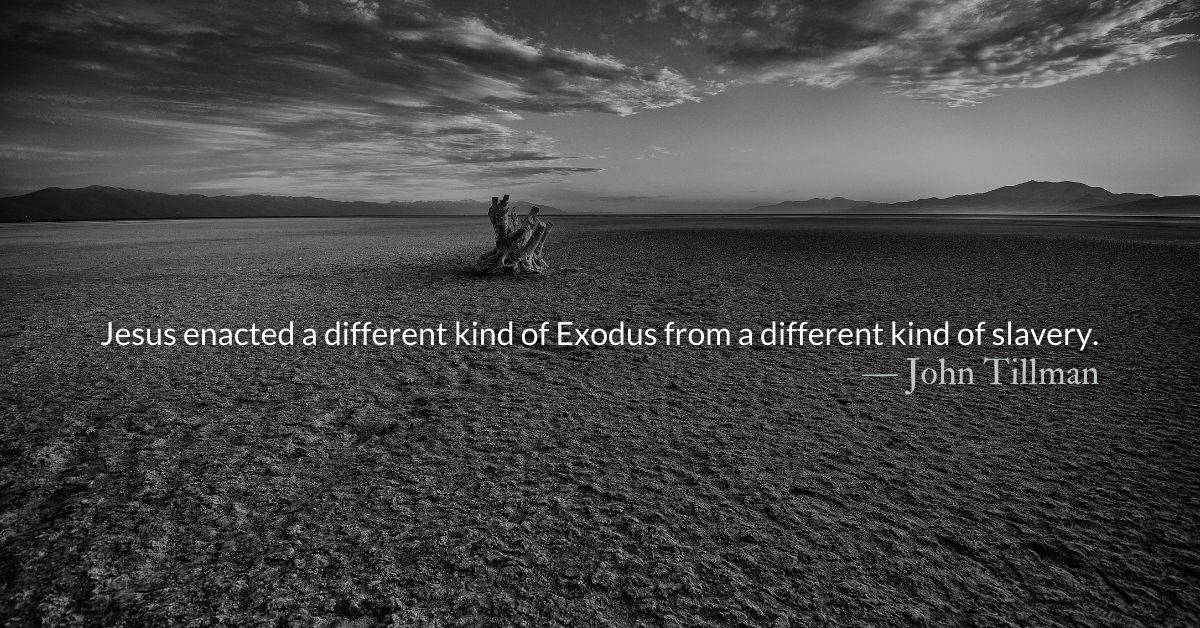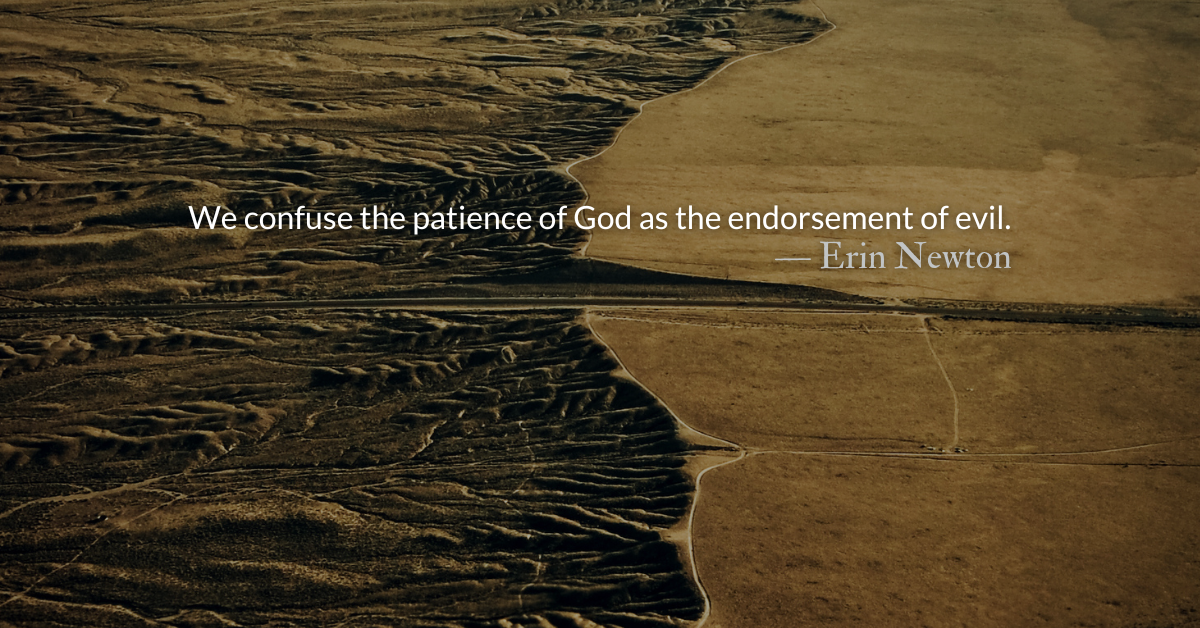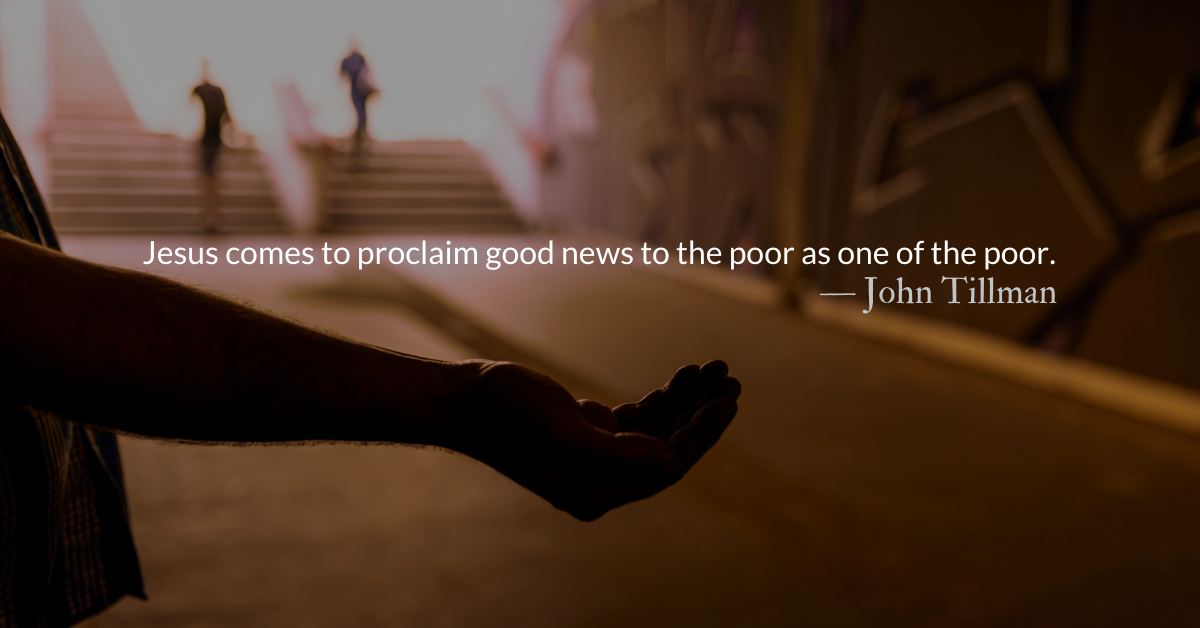Scripture Focus: Habakkuk 3.2, 13-19
2 Lord, I have heard of your fame;
I stand in awe of your deeds, Lord.
Repeat them in our day,
in our time make them known;
in wrath remember mercy.
13 You came out to deliver your people,
to save your anointed one.
You crushed the leader of the land of wickedness,
you stripped him from head to foot.
14 With his own spear you pierced his head
From John: This reflection on Habakkuk 3 from Advent in 2018 is equally relevant in May of 2022 as it was then.
Reflection: He Became a Servant
By John Tillman
Habakkuk’s psalm longs for the Lord to make himself known as he had in the past.
The prophet seems to be referencing the Exodus from Egypt, as he depicts God marching out with plagues and pestilence. He recalls God intervening to save Israel from the oncoming armies of Pharaoh.
Habakkuk trusts that calamity will come on the nation that conquers Judah, but that does not bring him joy. No matter that all seems to be failing around him, his joy will come from God.
What Habakkuk waited for, we have seen in Jesus. God served the enslaved Israelite nation by coming as a mighty warrior, a liberator. Jesus enacted a different kind of Exodus from a different kind of slavery. He attacked sin and death itself, not by becoming a warrior but by becoming a servant.
Jesus also marched out, with his face set like flint toward those he came to save and what he came to do. But instead of bringing with him destruction and plagues, he brought compassion and healing. Instead of girding himself with armor and taking up weaponry, he stripped himself and took up a towel. Instead of slaying the firstborn of Egypt, Jesus, the only begotten son of the Father, offered himself to be slain.
And just like Pharoah rushed into the parted sea with his armies, thinking he had won, Satan must have thought the cross a moment of victory. Instead, it was the instrument of his destruction.
Habakkuk wanted God to make himself known, and he has done so in the person of Jesus. Jesus is our perfect and complete picture of what God is like. He is still among us as one who serves and we are to be like him.
May we serve him well by serving others. Worldly leaders will continue to puff themselves up. Kings will continue to abuse their power. Darkness will continue to wage a futile war against light. But as for us, we will rejoice in the Lord and be joyful in God our Savior.
May the Sovereign Lord be your strength, making your feet like those of a deer, to go on the heights. (Habakkuk 3.18-19; Psalm 18.33)
Divine Hours Prayer: The Refrain for the Morning Lessons
Righteousness shall go before him, and peace shall be a pathway for his feet. — Psalm 85.13
Today’s Readings
Habakkuk 3 (Listen – 2:59)
Mark 8 (Listen – 4:29)
This Weekend’s Readings
Zephaniah 1 (Listen – 3:09), Mark 9 (Listen – 6:16)
Zephaniah 2 (Listen – 2:44), Mark 10 (Listen – 6:42)
Read more about God, Can You Hear Me?
Honest reflection on suffering is how the book of Habakkuk opens. The heart of the prophet cried out to God. Was God deaf to his pain?
Read more about Anointed Servants
Jesus’ 33-year incarnation was a long, elaborate ritual which tore open the curtain of the Temple, allowing us to enter God’s presence.











